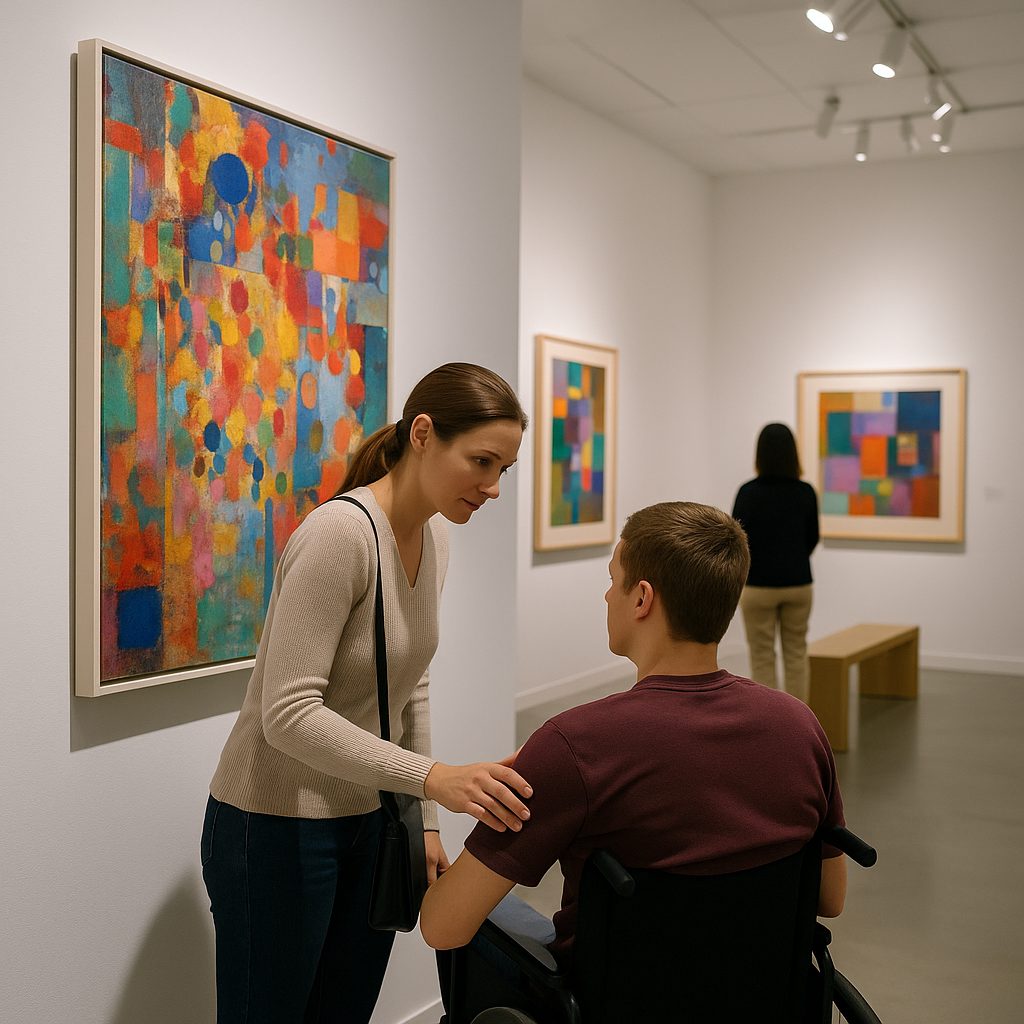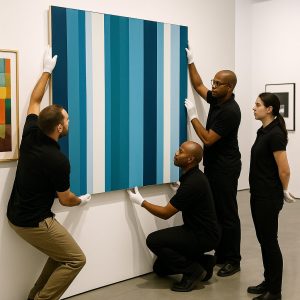Why Inclusivity Needs a Place in Art Week
Art Miami special-needs artists. When Miami Art Week kicks off, the canvas isn’t just galleries and activations—it’s cultural identity. Including special-needs artists in Art Miami and Art Basel shows is more than a gesture: it’s a commitment to reshaping who gets to be seen, heard, and collected.
For Elite Nannies Miami and Elite Household HR, this overlap between art and access is deeply personal. We support families navigating neurodivergence, sensory differences, and unique learning patterns. Inclusive exhibitions serve not just as showcases—but as invitations to belong.
Inclusive Principles at Large Scale Fairs
Designing for All Abilities
-
Sensory-aware layouts: Calmer lighting, quiet corridors, rest areas, and signage designed for visual clarity.
-
Multi-modal engagement: Text descriptions, audio tours, and touch elements (when permitted).
-
Soft opening timings: Reserved hours for families needing slower pacing or fewer crowds.
Elevated Curation + Equity
Inclusion does not mean lowering standards. At Art Miami / Basel, inclusive programming should still emphasize artistic quality. The narrative of ability is context, not definition. It’s about raising voices, not specifying limitations.
Lasting Community Legacy
-
Artist visibility: Opening pathways from studio to gallery to institutional collections.
-
Skill development: Structure and repetition in gallery participation build executive and social function.
-
Partnership resonance: Schools, therapy centers, arts orgs see frameworks to scale access.
How Families Can Visit These Fairs with Confidence
Pre-Visit Planning
-
Use press or preview hours (less crowded) to get acclimated.
-
Identify accessible entrances, seating zones, elevator routes.
-
Bring noise blockers, visual supports (photo stories), and a quiet item.
During the Visit
-
Focus on 1–2 galleries, not sweeping the fair.
-
Engage tactile or descriptive pieces first, then progress to more challenging works.
-
Role-model gallery etiquette: “Notice lighting, look from a step back, whisper questions.”
Post-Visit Reflection
-
Capture immediate reactions: “Which piece made you stop? Why?”
-
Replicate at home: choose two colors or forms and create a simple art piece.
-
Celebrate expression more than critique.
For Collectors & Fair Organizers: Protocols to Elevate Inclusion
-
Commission artists early with supportive frameworks and honorariums.
-
Document accessibility choices (signage, program guides, gallery practices) for private shows.
-
Fund inclusion initiatives—residencies, mentorship, studio support.
-
Measure real impact: track participation, repeat visits, feedback from disabled artists and families.
For Educators, Therapists, and Household Staff
-
Embed exhibits into IEPs or programs: goal-oriented gallery visits tied to therapy, executive skills, social goals.
-
Train caregivers to gallery protocols: transitions, behavior support, communication scripts.
-
Create rotational exposure paths: smaller mini-shows, libraries, local artist studios before the big fair.
Our Ongoing Mission & Support
At Elite Nannies Miami and its Elite Household HR division, we believe cultural life must be accessible. We help families design day-of support, sensory-aware itineraries, and continuity plans so that fairs become joyful, not stressful.
-
Learn how we support families in art environments: Elite Household HR
-
See more on fair schedules and programs via Art Miami: https://www.artmiami.com and Art Basel Miami Beach: https://www.artbasel.com/miami-beach
Planning to attend Art Miami or Basel with a family member who experiences sensory differences? Need strategy or support? Elite Nannies Miami can design a day-of aide, continuity plan, or quiet itinerary so your experience is enriching, dignified, and comfortable.
Staff writer Thalya Olmos is Elite Nannies Miami Founder and CEO. Mrs. Olmos resides in Miami with her Family, her nine year old daughter Liah, her six year old dog Otis & 3 year old crazy Pom Dali . Thalya is a passionate community leader and mobilizer. An outspoken advocate with a people-centered approach, Thalya is particularly interested in promoting programs and services that involve the prevention and reduction of disparity among at-risk or underserved populations. Her professional and volunteer experiences include public policy and advocacy activities, community mobilization, capacity building, program evaluation, and non-profit administration and board development. On her spare time she loves to read, watch foreign films and immerse herself in the world of art.




